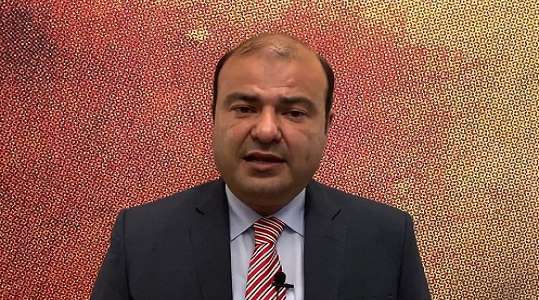The Secretary-General of the Union of Arab Chambers, Dr. Khaled Hanafy, referred to the "possibility of increasing trade between Arab countries and Brazil, by making Egypt a center for African and Asian markets," pointing out the activities that can benefit the economic zones in Egypt and the Arab countries in order to develop economic relations with Brazil, which is an important economic partner for the Arab world.
Hanafy’s words came during a speech he delivered at the electronic symposium, organized by the Union of Arab Chambers and the Arab-Brazilian Chamber of Commerce, on the reality of logistics and transport between Brazil and the Arab countries, which aimed to discuss opportunities, obstacles, and the role of the maritime route through the Suez Canal.
Hanafy stressed the "importance of a strategic alliance between Brazil and the Arab countries, in order to enhance cooperation in the field of industry, in addition to the sectors of agriculture and food, as well as technology, railways and other potential businesses."
He pointed out that trade between Brazil and the Arabs has not yet reached its peak, and there is a possibility to raise the volume of cooperation and trade exchange between the two sides, but the question is: How can this be accelerated? How can the integration between the two parties be improved?
Hanafy said that technology transfer can help in this and contribute to building greater trust in the relationship, noting that operations that benefit from free trade zones such as the Suez Canal Economic Zone can reduce time and costs.
For his part, President of the Arab-Brazilian Chamber of Commerce, Osmar Al-Shahfi, pointed out the importance of the Suez Canal for global trade, pointing out that “since the canal was opened in 1869, it is still one of the main maritime trade routes in the world due to its main location between Africa, Asia and Europe and also its importance for trade between the Americas and the rest of the world. Al-Shahfi said that the Suez Canal Free Zone represents for the Brazilians a major gateway to markets and an opportunity for companies to explore the Arab market and the global Islamic market. Considering that the Suez Canal's strategic geographical location, in addition to the policies to attract foreign investments and the trade agreements signed between Egypt and other countries, are competitive advantages that can benefit Brazilian companies in the process of becoming global.
In turn, the advisor of the General Authority for the Economic Zone of the Suez Canal, Mohamed Abdel Aziz, said that the zone grants 0 percent of customs duties and a five-year residency to foreign investors in Egypt, among other advantages. Noting that by using economic zones, Brazilian companies will have shorter supply chains, preferential access to more markets, greater penetration into existing markets and more integration with global trade.
As for the Vice-President of the Investment Promotion Corporation in Lebanon (IDAL), Alaa Himyeh, he stressed that "the main challenge lies in the high cost of maritime transport between Brazil and the Arab countries," stressing "the importance of finding strategic partners to increase trade between the Arab and Brazilian sides."
The Assistant Executive Secretary of the Brazilian Ministry of Infrastructure, Felipe Fernandez Queiroz, explained that 21 percent of all reefer container loads leaving Brazil pass through the Suez Canal. Pointing to the DP World Santos terminal in Santos (DP World Santos) as an outstanding example of Arab investment in Brazil.
Source (Union of Arab Chambers)

